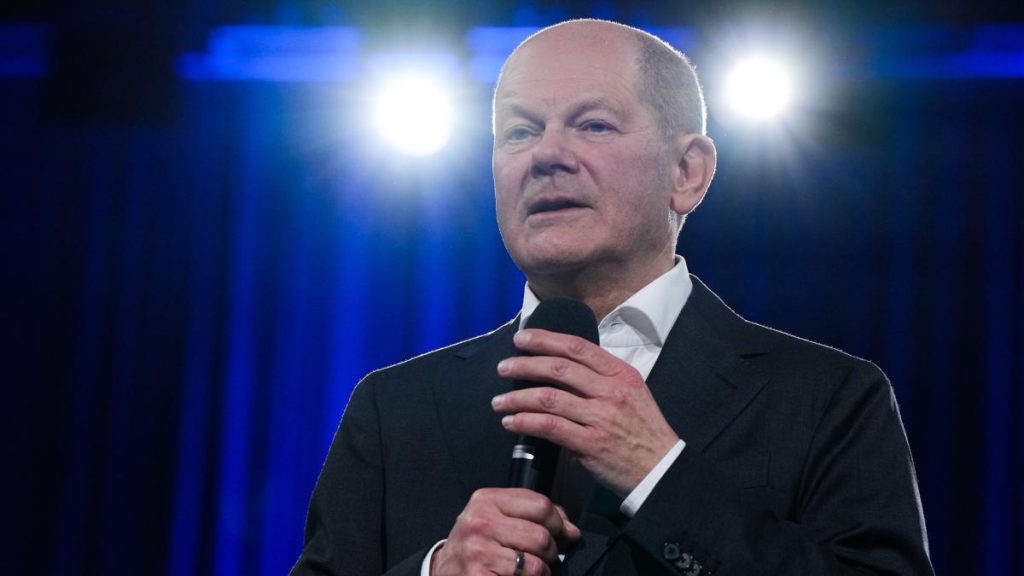Olaf Scholz, the Chancellor of Germany, expressed his desire for people to remain relaxed in order to improve their interactions with each other during a “Chancellor’s Conversation” event in Brandenburg an der Havel. He responded to claims of speech restrictions by saying that in Germany, people are allowed to express their opinions freely, even if it involves criticizing the Chancellor or making obscene gestures. Scholz emphasized the importance of democratic values and encouraged more dissent against the rise of right-wing extremism, citing a recent meeting between AfD officials and right-wing extremists where plans for the “remigration” of German citizens were discussed.
The Chancellor’s tour of various states coincides with a super election year in Germany, where the ruling coalition is facing challenges from the far-right AfD party. In Brandenburg, a group of around 50 demonstrators gathered outside the event venue to protest against Scholz, displaying banners and flags with slogans critical of the government. Inside the hall, Scholz answered questions on a range of political issues, including the need for skilled immigration to maintain the country’s prosperity and the necessity for sanctions against individuals who refuse to work. He also addressed concerns about the treatment of Jeside refugees and Germany’s stance on the conflict in Gaza.
During the event, an older woman accused Germany of hypocrisy in its response to the Gaza conflict and called for more action to alleviate the humanitarian crisis in the region. Scholz defended Germany’s involvement and stated that he had communicated his concerns directly to Israeli Prime Minister Benjamin Netanyahu. The Chancellor also addressed questions about student debt and the country’s fiscal policy, emphasizing the need to balance investments with responsible budgeting. Although the far-right AfD party was not explicitly mentioned, discussions frequently revolved around the challenges posed by right-wing extremism.
As the event came to a close, a citizen expressed his dissent by shouting insults at Scholz and demanding his resignation. The Chancellor calmly responded to the outburst and reiterated the importance of upholding democratic principles in the face of differing opinions. Scholz highlighted the historical significance of defending democracy against threats, drawing parallels to the challenges faced by the Weimar Republic. Despite facing criticism and opposition, Scholz remained composed and emphasized the need for diverse opinions while also reiterating the importance of safeguarding democratic values in the present political climate.


